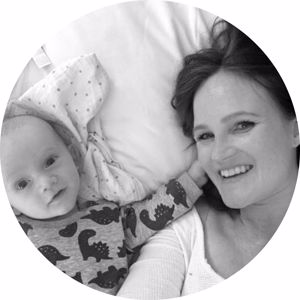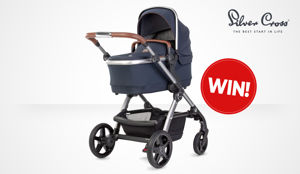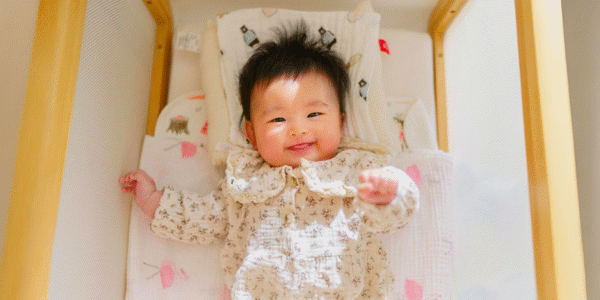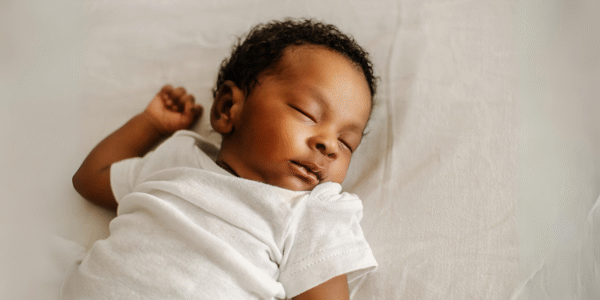Welcome to the rollercoaster of early pregnancy. This time is often packed with anticipation, a whirlwind of emotions, and, let's be honest, a fair share of discomfort.
At Wish I'd Known, we crowdsource real experiences weekly – and anonymously – from a large group of parents of 0–3-year-olds. Parents then see what the rest of the community is doing, feeling and experiencing. We cover a broad range of everyday topics, from toys to tantrums and milestones to mental health. And given the journey of parenthood begins well before a baby arrives in this world, we cover a lot on pregnancy too.
Click here to learn more about the Wish I'd Known community!
Here's a peek into what we've uncovered about the first trimester:
Most of us experience nausea, although a significant number will escape vomiting 🤢
Pregnancy sickness is a very common experience, with the vast majority reporting some level of nausea during pregnancy. Across all age groups, only 1 in 10 reported no nausea or vomiting at all.
More community members reported vomiting than those who had nausea but no vomiting, although the severity varied. A small but significant number of parents were diagnosed with hyperemesis gravidarum, a severe form of pregnancy sickness.
So, which foods help curb the nausea? Crackers and bland carbohydrates were the top two go-to choices, with small, frequent meals and ginger (e.g., biscuits and tea) coming joint third.
If you’re going through this now, we feel your pain and are sending love. You will get through it! And always speak to a healthcare professional if you're worried about your symptoms.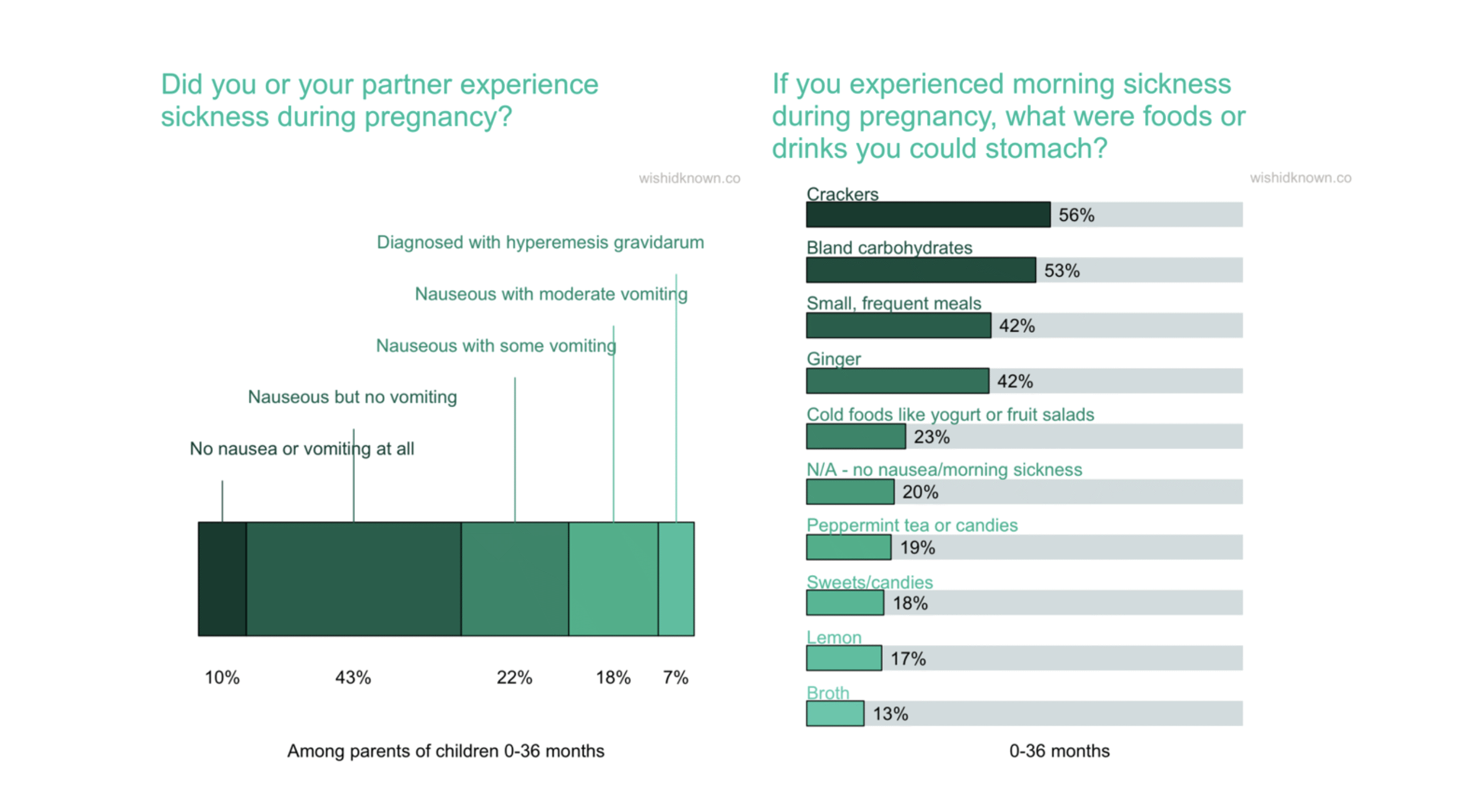
If you’re wondering whether to invest in an antenatal group, the consensus is it’s worth it to meet people 👯♀️
Nearly half of parents rated their antenatal support network as 8 out of 10 or higher, in terms of importance in their lives post-baby. And when we separately asked parents what they found most beneficial from the antenatal classes, meeting local parents also came top.
In terms of learning about parenthood, antenatal classes played an important role in preparing the non-birthing partner for involvement, as well as education about various medical interventions. However, learning about inductions and c-sections scored lower, as well as reducing fear and anxiety. So worth managing expectations that these classes will probably not teach you everything you might want to know!
That said, there are also other ways to find local friends if a group doesn’t work for you. A quarter of parents in our community used apps to find local buddies, while others networked through social media. This indicates that while traditional support networks like antenatal groups are valued, many parents are also exploring digital avenues to connect with others in their situation.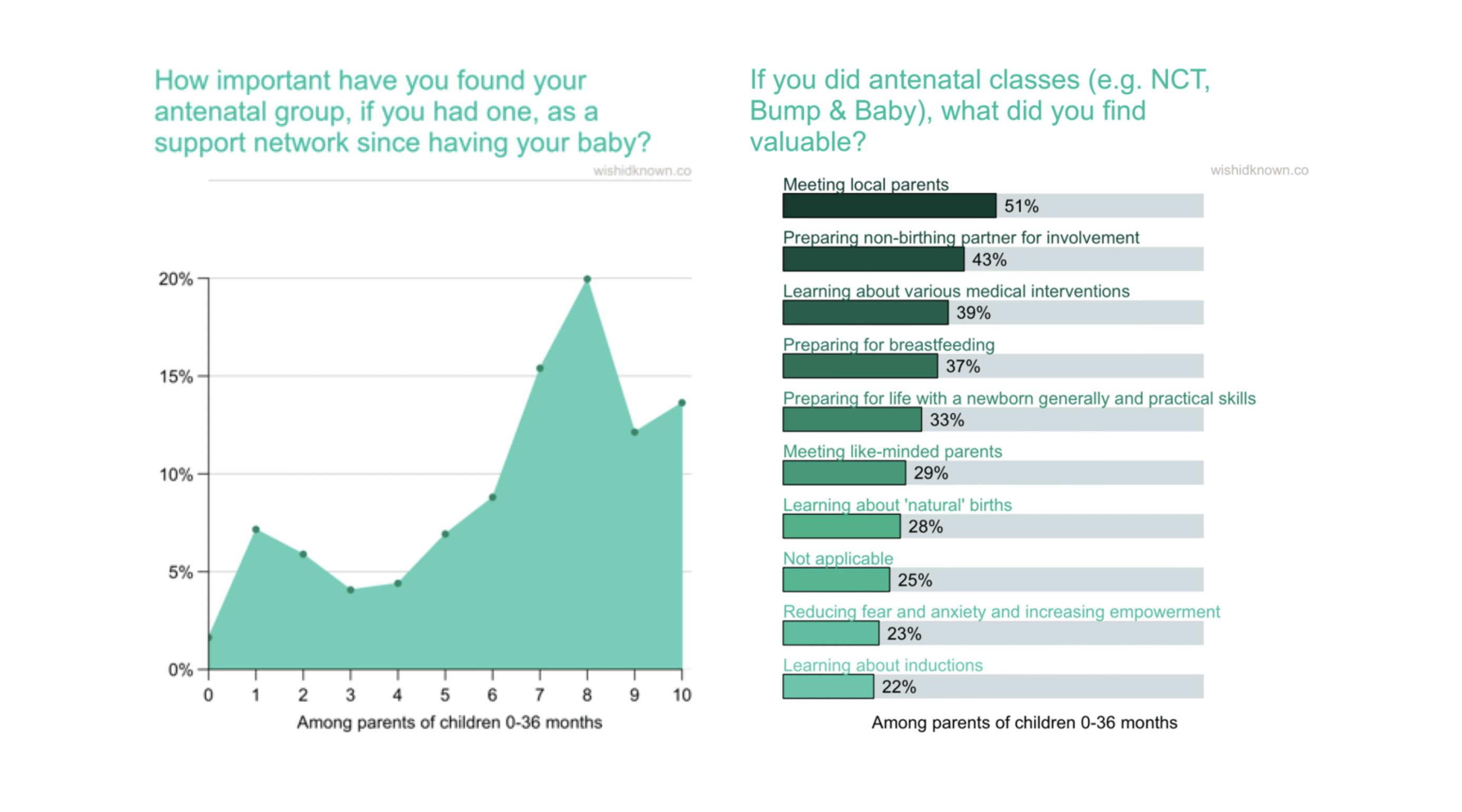
It’s time to debunk the “baby person” myth
If you’re worrying whether being a parent will come naturally to you, know that most parents don’t think of themselves as ‘baby people’ before having their children. So, if you're not swooning over every stroller you see, you're in good company. Parenthood has a way of bringing out a side of us we never knew existed.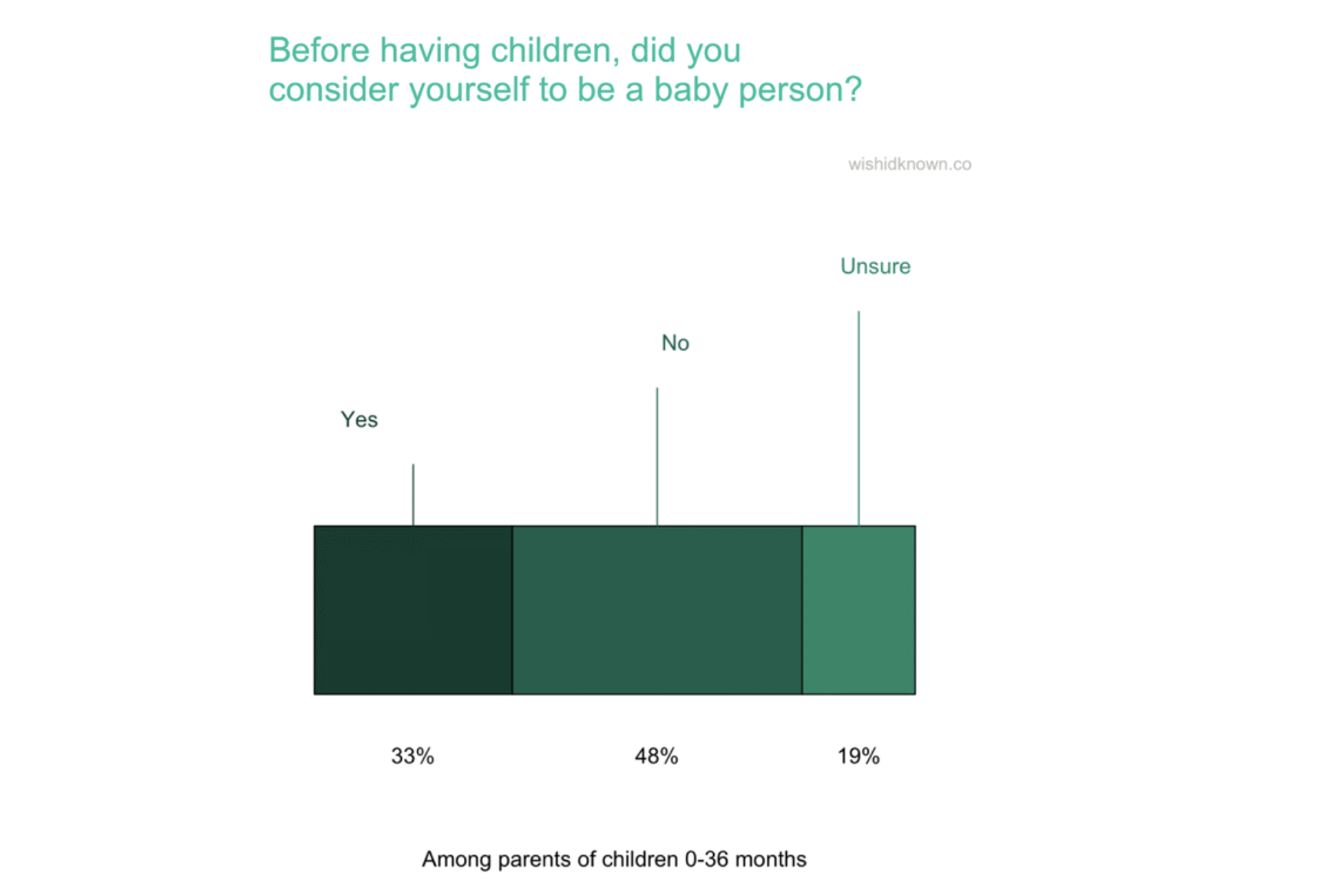
Pregnancy after a long journey to conception or loss is often difficult and complex
If you’ve experienced fertility struggles, miscarriage, termination for medical reasons or stillbirth, know you're not alone in your mix of worry and hope. Here are some themes that emerged when we explored this topic with our community:
- Anxiety was a common thread, with most parents sharing feelings of ongoing worry throughout subsequent pregnancies. One parent shared, "Was extremely anxious before the 20-week scan as feared I had done all sorts of things wrong that might damage my baby", while another said, "I dreaded going to the toilet and seeing blood."
- This anxiety made it challenging to fully embrace the pregnancy and was often accompanied by a sense of disbelief. As one parent shared, "We didn't buy anything for the baby, or even look at baby equipment until 30+ weeks.”
- Increased medical vigilance was often a way to manage anxiety and ensure everything was ok with the baby. One parent shared, "During the 3rd trimester, I worried about baby’s movements and counting kicks, but I also had extra scans due to my history. The extra scans really helped with my anxiety and fears."
- Some parents found it hard to bond with their baby early on in pregnancy, due to fear of another loss. One parent shared, "I avoided saying 'I'm having a baby' and would say things like 'I'm currently pregnant'. I always felt the need to add something like 'if all goes well' to every announcement."
- Despite the prevalent anxiety, a smaller group of parents mentioned finding joy and excitement in their subsequent pregnancies too. As one parent shared, "It was a conflict of emotions but even with the loss, I felt such a happy strong connection with my baby during pregnancy." Parents also mentioned anxiety lifting as the pregnancy progressed, with one parent saying, "I am 27 weeks now and finally feel like there could be a positive outcome."
- Some mentioned that these experiences affected relationships, often due to differing ways of coping with anxiety. One parent said, "I cried A LOT and was then angry when my partner kept saying that I should be enjoying the pregnancy more." Conversely, another parent mentioned her partner's struggles, saying "He still (at 15 weeks) doesn't like telling people we will have a baby. He is too afraid to allow himself to think it'll go fine this time."
These experiences are a testament to parents' resilience and strength. Feelings of anxiety, joy, and everything in between are valid. There is no 'right' way to feel during this journey. 💜
To know or not to know the sex?
It’s one of the main questions we get asked when we tell people we’re pregnant: ‘Are you going to find out if it’s a girl or a boy?’
With so much out of our control as parents, perhaps it's not surprising that 3 out of 4 were eager to find out the sex before birth. But a quarter found anticipation and excitement in the wait. There's no right answer, so do what feels best for you.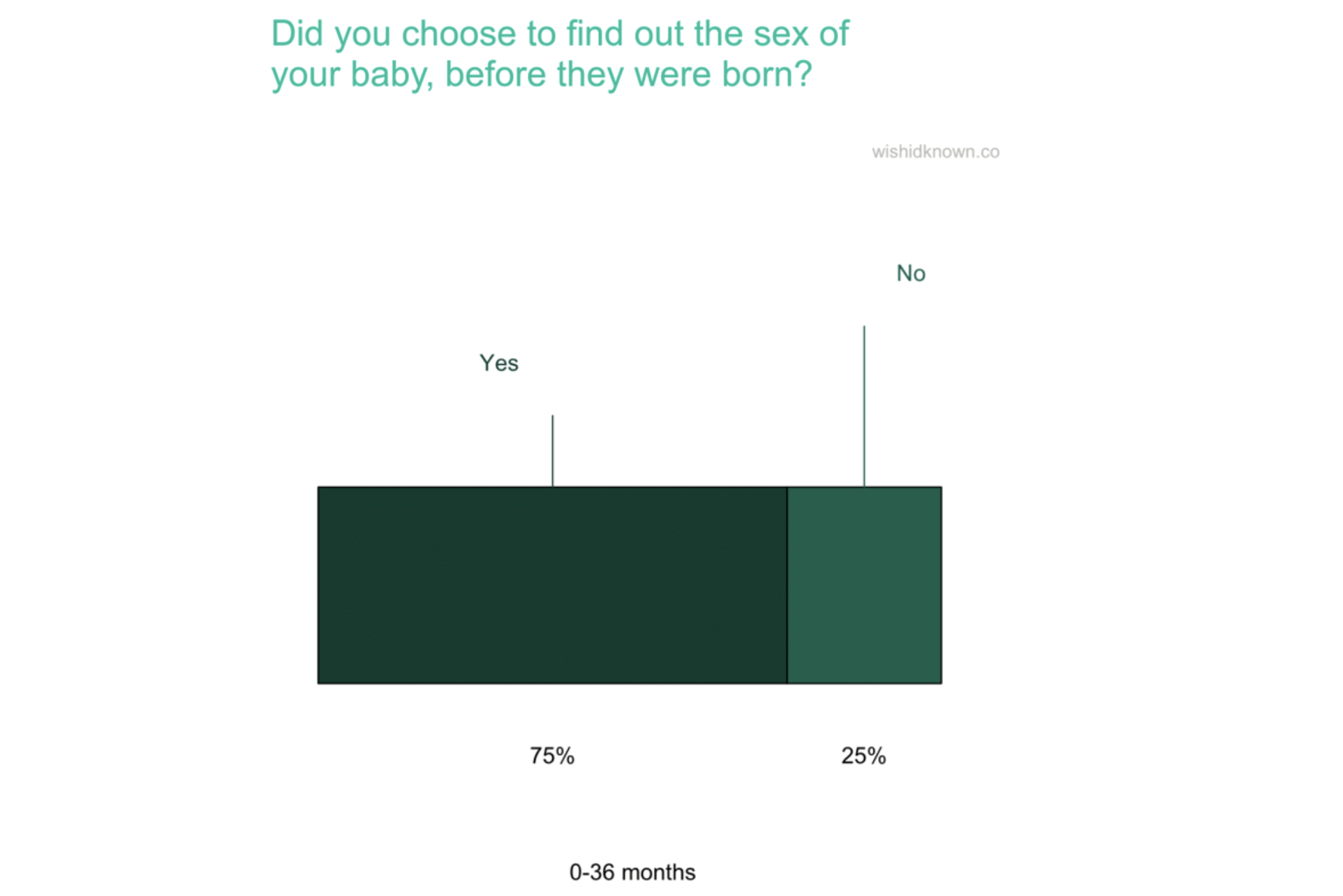
Our mission at Wish I’d Known is to reassure parents and normalise parenting ups and downs. We hope these insights from our community offer comfort and camaraderie.
If you're curious to see more from our free community and add your voice, we’d love it if you joined us.

